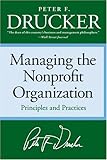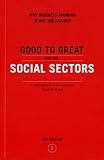Very interesting turn of events, which could prevent the very wrong-headed health reform bill from being able to pass:
Voter disenchantment in liberal Massachusetts with President Barack Obama’s policies has turned a Senate election into a nail-biter that could imperil U.S. healthcare reform.
Democrats envisioned a smooth passing of the baton in the January 19 special election to fill the seat of the late Edward Kennedy, a political giant who died of brain cancer in August after holding the seat for 46 years.
A victory would maintain the Democrats’ 60-seat Senate majority, allowing them to overcome Republican procedural hurdles that could block reform of the $2.5 trillion healthcare sector, Obama’s top legislative priority.
Instead, some polls say the race between State Attorney-General Martha Coakley, 56, and her Republican opponent, State Senator Scott Brown, is too close to call.
“The closeness of the race reflects deep voter dissatisfaction with how the president and the congressional majority are dealing with vital matters,” including healthcare and the war on terror, said Mark Landy, a political science professor at Boston College.
For my view on health reform, see my posts The Worst Bill Ever and How Health Savings Accounts–Not New Laws–Are the Key to Health Reform.


